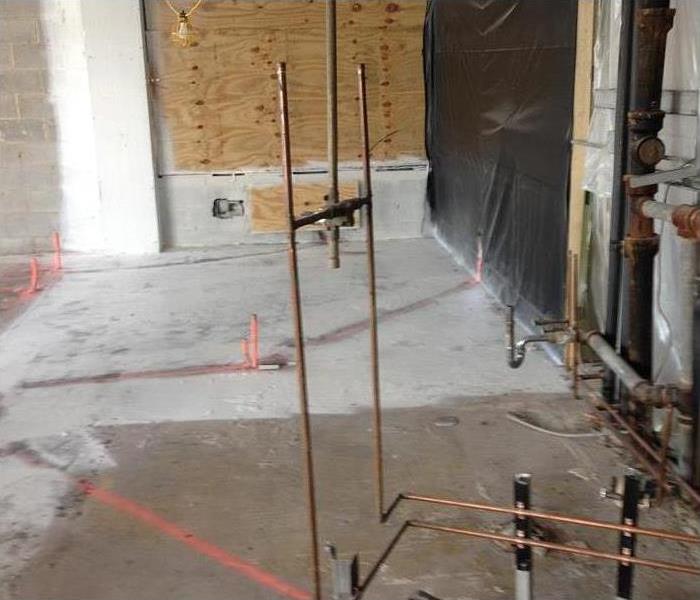Preventing the Spread of Mold in Your Rental Property
4/11/2019 (Permalink)
Spread Mold
While mold prevention is an excellent practice to get into the habit of as a property manager, it doesn't do you much good when you already have an issue. However, prevention can quickly transform into protection when dealing with a current problem, as preventative steps are used instead to reduce the risk of further contamination and exposure.
1. Seal Off Contaminated Areas
Prevention calls for ensuring seals around doors and windows to be intact and tight. The same applies when dealing with mold growth, except you are now ensuring that the contaminated area is well sealed from the rest of the building, meaning that you close all doors and windows to the area. Additionally, you can use plastic sheeting to ensure a tight seal thereby reducing air movement and mold spore spread.
2. Turn Off Water
Mold prevention also mandates that you seal and repair any sources of water damage. When dealing with an area that has already experienced water damage and is currently contributing to mold development, you should turn off the water supply to that area.
3. Control HVAC Settings
While prevention often calls for ventilation, when dealing with an existing fungal problem, ventilation is the enemy because it allows for the spread of spores. Therefore, if you cannot turn off the HVAC system, you should control the temperature settings to reduce the number of times the unit cycles on and to minimize the risk of mold spores getting pushed throughout the system and the property.
4. Hire a Remediation Specialist
It is OK to admit you need help. Calling a mold remediation specialist in the North Aurora, IL, area is probably the wisest decision you can make because they are trained and certified to deal with your current problem.
Mold prevention goes beyond eliminating potential risks as it also relates to controlling and mitigating a current problem. Reduce the air flow in contaminated areas, turn off contributing factors and call a specialist to remediate the situation safely. Don't put yourself or your tenants at risk.




 24/7 Emergency Service
24/7 Emergency Service
